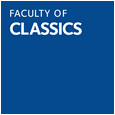Juno trains her chorus: Statius, Thebaid 12.464-480
May 2023
| Journal article
| Athenaeum
This article explores the presence of tragedy in Book 12 of the Thebaid. It argues that the description of the entry of the Argive women into Athens and appeal for assistance in securing burial for their dead fathers, husbands, and sons depend closely on the equivalent scene at Eleusis in the Supplices of Euripides. In particular, it argues that Statius employs technical terms for the training and bringing on stage of a tragic chorus both as a figure of allusion acknowledging the scene’s debt to Euripides and in order to indicate that it is only through tragic appeal to the emotions that this epic poem can reach an ending. The final section of the paper considers briefly what are the implications of its findings for the interpretation of the closing scenes of the poem.



